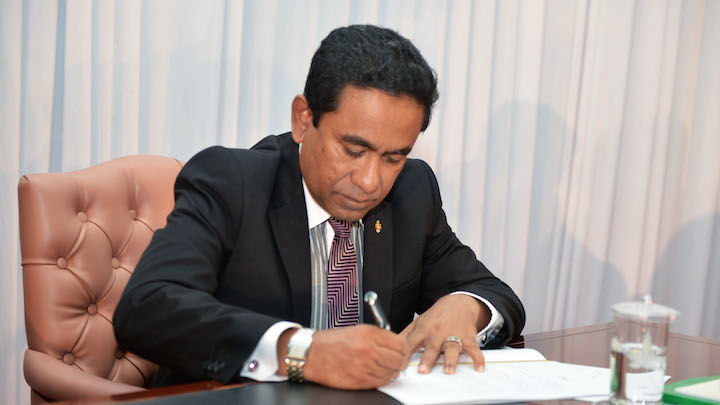Historic law paves way for equitable distribution of marital property
President Abdulla Yameen ratified last week changes brought to the Family Act to pave the way for equitable distribution of marital property after divorce, despite opposition from religious scholars and ruling party lawmakers.

01 May 2016, 09:00
President Abdulla Yameen ratified Thursday amendments to the Family Act that will allow for the equitable distribution of marital property after divorce, despite opposition from religious scholars and ruling-party lawmakers.
The Progressive Party of the Maldives-dominated parliament approved the amendments on April 18 with 50 votes in favour, four against, and five abstentions.
The amendments grant judges the power to divide property acquired during the course of a marriage, but only if the couple signs a prenuptial agreement agreeing to equitable distribution of marital property upon divorce.
Most Maldivians do not sign prenuptial agreements.
Become a member
Get full access to our archive and personalise your experience.
Already a member?
Discussion
No comments yet. Be the first to share your thoughts!
No comments yet. Be the first to join the conversation!
Join the Conversation
Sign in to share your thoughts under an alias and take part in the discussion. Independent journalism thrives on open, respectful debate — your voice matters.




